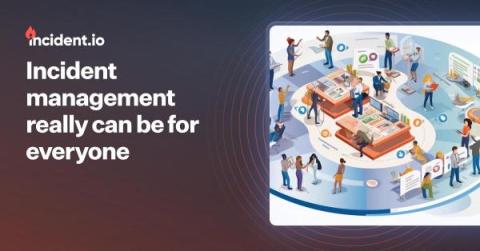Operations | Monitoring | ITSM | DevOps | Cloud
Incident Management
The latest News and Information on Incident Management, On-Call, Incident Response and related technologies.
Unleash the potential of intelligent, context-aware automation with BigPanda and Ansible
Many ITOps organizations we speak with want a state of self-healing systems capable of identifying and resolving issues without human intervention. Thanks to the progress in AI and ML, AIOps has made significant advancements in areas that automate many of the steps involved with identifying and triaging incidents. We ask ITOps leaders why they aren’t taking the next step with auto-remediating incident response workflows.
Status Pages and Incident Management for Higher Education
Incident communication best practices for an elevated user experience
Downtime is unavoidable, and incidents happen. Organizations need to be rapid and transparent in communicating incidents with their customers. Lack of timely communication can jeopardize the entire incident management process and increase user frustration. This guide provides rich insights into what incident communication is, why it's important, and best practices for effective incident management. What is an incident, and why is incident communication important?
Understanding intelligent alerts in ITOps and alert management best practices
As an ITOps leader, you know managing enterprise IT can be challenging, with its mix of old and new, on-site and cloud-based systems. Closely monitoring each part of the system infrastructure and its many components is a constant struggle, forcing you and your team to juggle non-stop alerts and keep services up and running. How can you stop alert fatigue and gain clarity when alerts are incessant, unclear, and lack the necessary context? The answer lies in intelligent alerts.
From Chaos to Actionable Insights with PagerDuty Integrations and Automation
It’s 2023. In today’s world, every company and individual, regardless of their industry, relies on software to increase productivity. Our users expect our technology to be available and reliable at all times. If your software serves businesses within a single country during regular working hours, they expect it to be available throughout that time. Easy, right?
ilert ChatOps: Create alerts in Slack
A tool rationalization head start with BigPanda
Tool rationalization, sometimes called tool consolidation, is the systematic analysis of observability and monitoring tools, the consideration of onboarding new tools to fill gaps, and the retirement of unnecessary tools. Perhaps you and your IT team are struggling with constantly buying new tools to meet a very niche use case to unlock new capabilities.
Tip of The Day : How to Best Use Incident Templates
Incident management really can be for everyone
Incident management tools are often built for engineers to solve technical issues. On the surface, thinking of incident management as an engineering problem makes sense, and it’s an approach that’s widely used by many organizations from small startups to large enterprises. When there's a problem like a checkout page failure or a server crash, it’s natural for engineers to spring into action, declaring and resolving these incidents.











